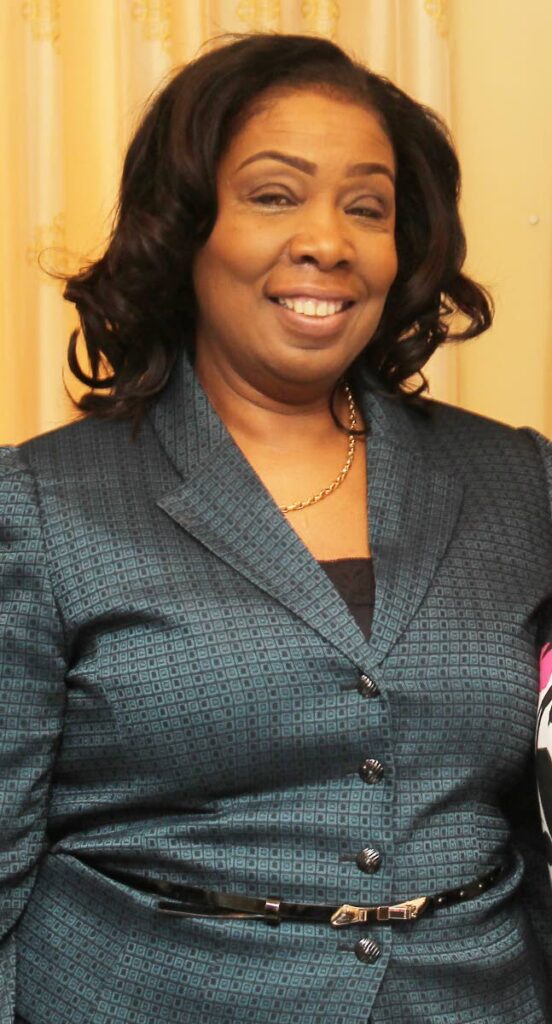Tribunal rules for Muslim woman –Discriminated because of hijab

A MUSLIM mother of two who was denied a job by the National Maintenance and Training Services Company Ltd (MTS) in 2017, because of her hijab, was discriminated against on the basis of religion.
This was the ruling on Friday of the Equal Opportunity Tribunal.
Tribunal chairman Donna Prowell-Raphael and lay assessor Lenore Harris declared Aisha Sabur was discriminated against in contravention of Section 8 of the Equal Opportunity Act and ordered that she receive $35,000 in damages before May 31, after which, interest will begin to accrue.
Only four days before the ruling, Zero Discrimination Day was observed. This is a day, marked every year on March 1, where United Nations members celebrate the right of all to a full and productive life with dignity, which cannot exist if there is discrimination.
Sabur’s complaint before the EOT was filed on April 26, 2017. In it, she complained that after she went to an interview for a job as a security officer, she was told of the MTS’s policy that her hair, neck and ears must be visible during the screening stage.
Sabur refused to remove her hijab on the grounds of her religion and said she felt humiliated at the treatment from the company’s personnel. She was unable to proceed with the interview.
In its defence, MTS denied Sabur was discriminated against, maintaining it was governed by regulations set out in the Supplemental Police Act which did not provide for the wearing of a hijab by precepted officers, who must wear the uniform approved by the Commissioner of Police.
The reason for those particular parts of the body to remain uncovered was to ensure there are no tattoos, body piercings or other permanent markings.
The company said at the interview screening process, Sabur did not want to stand in line with her head uncovered and left of her own volition.
In her ruling, Prowell-Raphael said the “bugbear of the incident” was the company’s policy and the difference between Sabur and the other interviewees was she wore her hijab on religious grounds.
“This broad policy of the respondent applied differently to different applicants, and in so doing affected the applicants wearing head-dress (including hijab) differently.
“The potential for discrimination in the treatment of these different groups of applicants was augmented by the failure of the respondent to make any arrangements for the interviewing of the applicants with head-dress, such as the hijab, that would ensure like or similar opportunities between applicants negatively affected by its policy, and those who were not (affected) and being offered employment,” Prowell-Raphael said.
It was for this reason, she held that Section 8 of the EOA was violated, as the wearing of the hijab falls within the definition of “religion” under the act.
She also noted the police service’s policy on the wearing of the hijab had been deemed unconstitutional by the High Court in 2018, so “it would not have been a legitimate aim to execute a policy, the underpinning of which has been held to be unconstitutional.”
She added, “The situation that the respondent found itself in is unfortunate because, at the material time, its hands were literally tied by the tenets of the police service governance.”
In her judgment, Prowell-Raphael also noted that on August 6, 2019, the commissioner, at the request of the company, had approved a change in its security uniforms to allow for the wearing of a hijab or head tie.
The chairman held that by having to remove her hijab in the presence of men who were strangers to her, Sabur would have undoubtedly been humiliated and distressed, eliciting an emotional response although she (Prowell-Raphael) doubted she was “moved to tears” as was claimed.
She also noted that Sabur was offered an alternative position in the MTS' maintenance department, which Sabur declined, and a $30,000 settlement was found to be reasonable.
Prowell-Raphael declined to order that the MTS make Sabur an offer of employment or apologise for its actions since it had taken immediate steps to change its policy and practices.
“The policy of the respondent that underpinned the discriminatory system was grounded in the respondent’s obligation to follow the law as it existed at that time by complying with the uniform approved by the Commissioner of Police and the practices and procedures of the police service.”
Sabur was represented by attorney Aaron Seaton while Michael Vialva represented MTS at the tribunal’s hearing.

Comments
"Tribunal rules for Muslim woman –Discriminated because of hijab"